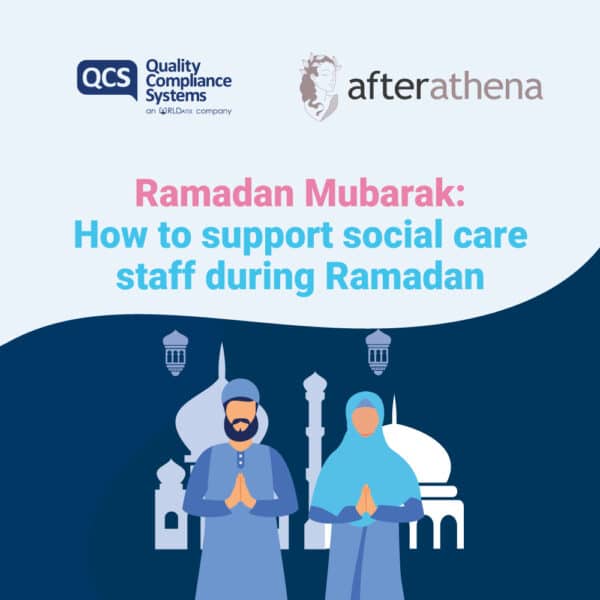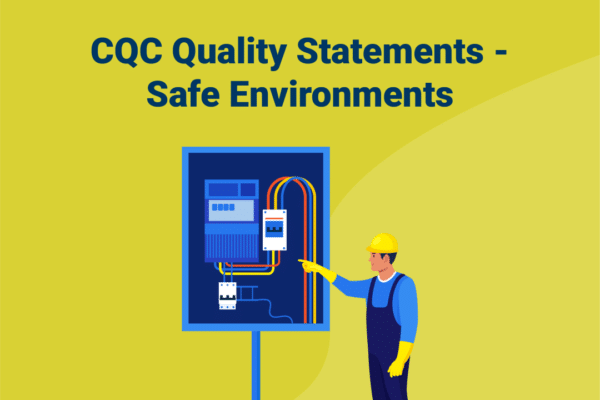Download our factsheet on ‘Ramadan Mubarak: How to support social care staff during Ramadan‘ from our partner, After Athena, here:
DOWNLOAD NOW
Alternatively, read it here:
With Ramadan expected to end early April this year, social care workers should continue to support any Muslim colleagues that are celebrating this important time in the Islamic calendar.
What is Ramadan?
Ramadan is the holiest month of the Islamic calendar in which Muslims fast for around 30 days (the exact timings can vary depending on the cycles of the moon). At the end of Ramadan, Muslims celebrate Eid al-Fitr a religious holiday during which people celebrate the end of their period of fasting and their accomplishments during Ramadan.
Muslims who observe the fast during Ramadan are unable to eat or drink during hours of daylight. Instead, they get up before sunrise to have breakfast and eat after sunset in the evening. As well as fasting, there is a special focus on prayer during the holy month, although many practicing Muslims will pray five times a day all through the year.
Fasting each day will last for more than 12 hours and this period extends as the month goes on, with the sun rising earlier and setting later each day. As well as this, worship will often continue into the night, affecting normal sleep patterns. Therefore, employees observing Ramadan are likely to experience high levels of fatigue, which may impact on their performance at work.
How to help your staff during Ramadan
It’s important that employers consider what they can do to help their staff during this time, such as offering flexible working hours, home working, or reducing the need for overtime, if possible. Home working would remove the need for a commute, which could help to reduce the impact on energy levels by providing more rest time, as well as maximising the time available for eating/drinking before and after work.
Another option would be to offer flexibility around an employee’s usual lunch break, it may be that this can take place earlier or later in the day and employers may want to offer flexibility around the length of the break (or whether this could be broken into smaller periods) but ensuring that this doesn’t drop below one 20-minute break every six hours, which is mandatory under the Working Time Regulations 1998). Employers should also consider whether they can provide a quiet designated space for employees observing Ramadan to pray during their breaks.
It’s also important for businesses to have open discussions with their staff about how they can support them during periods of religious observance – rather than imposing changes which may not be helpful, or received well. Employees observing Ramadan should feel comfortable approaching their managers to let them know about their needs during this time – it might help to communicate to staff that they are welcome to reach out to their manager to discuss any changes that they think would be useful.
Eid al-Fitr
Finally, as the date for Eid al-Fitr can be confirmed at short notice, employees may not be able to submit holiday requests with the usual notice requirements and there is no public holiday to celebrate Eid-AlFitr. Therefore, employers should be accommodating where possible and ensure that if they do have to decline a request for holiday, they have sound business reasons for doing so (to avoid potential discrimination allegations).
Overall, employers need to be aware that Ramadan has implications for the workforce and planning for the holy month is the best way to ensure that employees feel that their religious beliefs and practices are respected (helping to reduce the risk of grievances being raised or claims under the Equality Act 2010).






